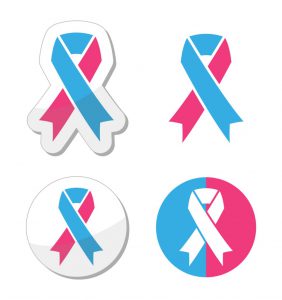Sudden infant death syndrome, or SIDS, is every parent’s worst nightmare. This occurrence, defined as the unexpected death of a healthy baby under a year old (usually in their sleep) is responsible for around 3,400 deaths each year. For many new parents, this terrifying possibility often means staying up all night checking on their babies. But while there is no sure way to prevent SIDS, there are some tips new parents can follow to lower their baby’s risk.
Causes of SIDS
While experts aren’t 100% sure what causes SIDS, there could be a combination of physical and sleep environmental factors that make a baby more vulnerable to it. These factors include:
Physical:
- Brain defects– Some infants might be born with brain defects that make them more likely to die of SIDS.
- Low birth weight- Premature birth increases the probability that a baby’s brain hasn’t matured completely, so they have less control over automatic processes such as breathing.
- Respiratory infection
Environmental:
- Sleep position – Sleeping on their stomach or side can make it more difficult for babies to breathe.
- Sleep surface – Sleeping on a soft surface such as a fluffy comforter or mattress can block a baby’s airway.
- Overheating
Prevention
As mentioned, there is no guaranteed way to prevent SIDS, but there are things that you can do to help your baby sleep more safely. For example:
-
- Put a sleeping baby on their back. Instead of placing your baby on their stomach or side, make sure to put them on their back for the first year of their life.
- Keep the crib as bare as possible. Use a firm mattress and try not to put any fluffy padding or quilts in the crib. Also avoid pillows, fluffy toys, or stuffed animals because they can block a baby’s airway.
- Don’t overheat your baby. Use light clothing or a sleep sack if you want to keep your baby warm. Never cover a baby’s head while they are sleeping.
- Have your baby sleep in your room. For the first 6 months of your baby’s life, it’s best to have them sleep in your room with you in a bassinet or crib.

- Use a pacifier. Sucking on a pacifier might reduce the risk of SIDS.
- Breastfeed your baby, if possible. Breastfeeding for at least 6 months lowers the risk of SIDS.
- Try swaddling your child. Swaddling helps to keep babies in a safe position at night.
SIDS can occur anytime during a baby’s first year of life, but the risk decreases after 6 months, and it’s extremely rare after one year of age. And there’s no doubt that it’s a very scary thought, but following the above tips will help keep your baby as safe as possible. Make sure your baby is checked regularly by a pediatrician and if you have concerns, reach out and speak to them.
In order to be able to do this, it’s important to be insured, so you can get the medical care that you and your baby need. If you’re not sure what plan is right for you, speak to an EZ agent! EZ agents are highly trained and knowledgeable and will sort through all available plans to make sure that you’re completely covered from babyhood and beyond.
We offer a wide range of health insurance plans from top-rated insurance companies in every state. And because we work with so many companies, and can offer all of the plans available in your area, we can find you a plan that saves you a lot of money – even hundreds of dollars – even if you don’t qualify for a subsidy. There is no obligation, or hassle, just free quotes on all available plans in your area. To get free instant quotes, simply enter your zip code in the bar above, or to speak to a local agent, call 888-350-1890.


